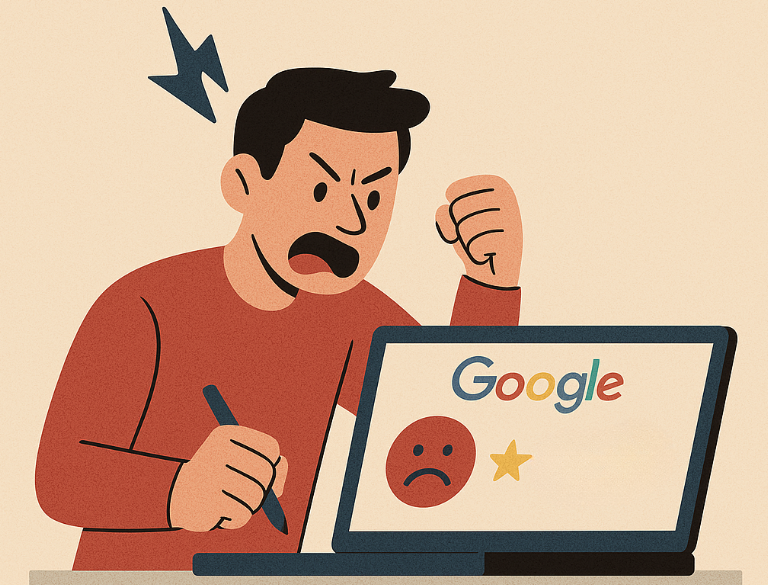Why the Best Businesses Look Bad Online (and What Nobody Tells You About Reviews)
Picture this: you’re hunting for a new spot to get your car fixed, grab coffee, or maybe hire a lawyer. You Google the business… and bam a wall of one-star reviews pops up. Looks like a disaster, right?
But here’s the catch: it’s often not the whole story.

Why the Angriest Voices Get the Loudest Mic
Human nature is funny. When something goes wrong, our brains scream, “Tell someone! Let the world know!” So, people rush to Yelp or Google with a scathing review. It’s their way of getting justice (or revenge).
But when things go smoothly? When the business actually does its job, treats you well, and has your back? Most people just… go on with their lives. No fanfare. No post. No five-star glowing essay.
In other words:
- Bad experience? Write a novel online.
- Great experience? Smile, say thanks, and forget about it.
The “Silent Majority” Problem
This means businesses often look worse online than they really are. Imagine a restaurant that serves 1,000 happy customers a month and 20 unhappy ones. Guess which group is filling up the review pages? (Spoiler: not the 1,000).
It’s like only hearing about the plane crashes but never the thousands of safe landings. The story is dramatically skewed.
Social Media Loves Drama (Shocking, I Know)
Add social media to the mix, and things get spicier. Outrage spreads fast screenshots, angry posts, viral rants. Meanwhile, the good stuff? It stays private, whispered over dinner tables or texted between friends: “That place is actually really good, you should try it.”
But whispers don’t trend. Rants do.
How Businesses Can Fight Back
The fix isn’t rocket science, it’s psychology. Businesses that thrive online are the ones that remind their happy customers to actually say something. Here’s how:
- Ask, don’t assume. A polite, “Hey, if you loved our service, would you mind dropping us a quick review?” works wonders.
- Make it ridiculously easy. One-click links to leave a review = more people actually doing it.
Show off the love. Share positive reviews publicly. People like being acknowledged, and it inspires others to chime in.
The Bottom Line
Bad reviews don’t always equal bad business. Sometimes, they just mean the quiet majority hasn’t spoken up yet.
So next time you’re scrolling through a list of angry one-stars, remember: for every loud complaint, there are probably dozens of happy customers whose silence doesn’t make the algorithm.
Businesses don’t just deserve to be judged by their worst day. They deserve credit for all the times they had their customers’ backs even if nobody hit “post” about it.













